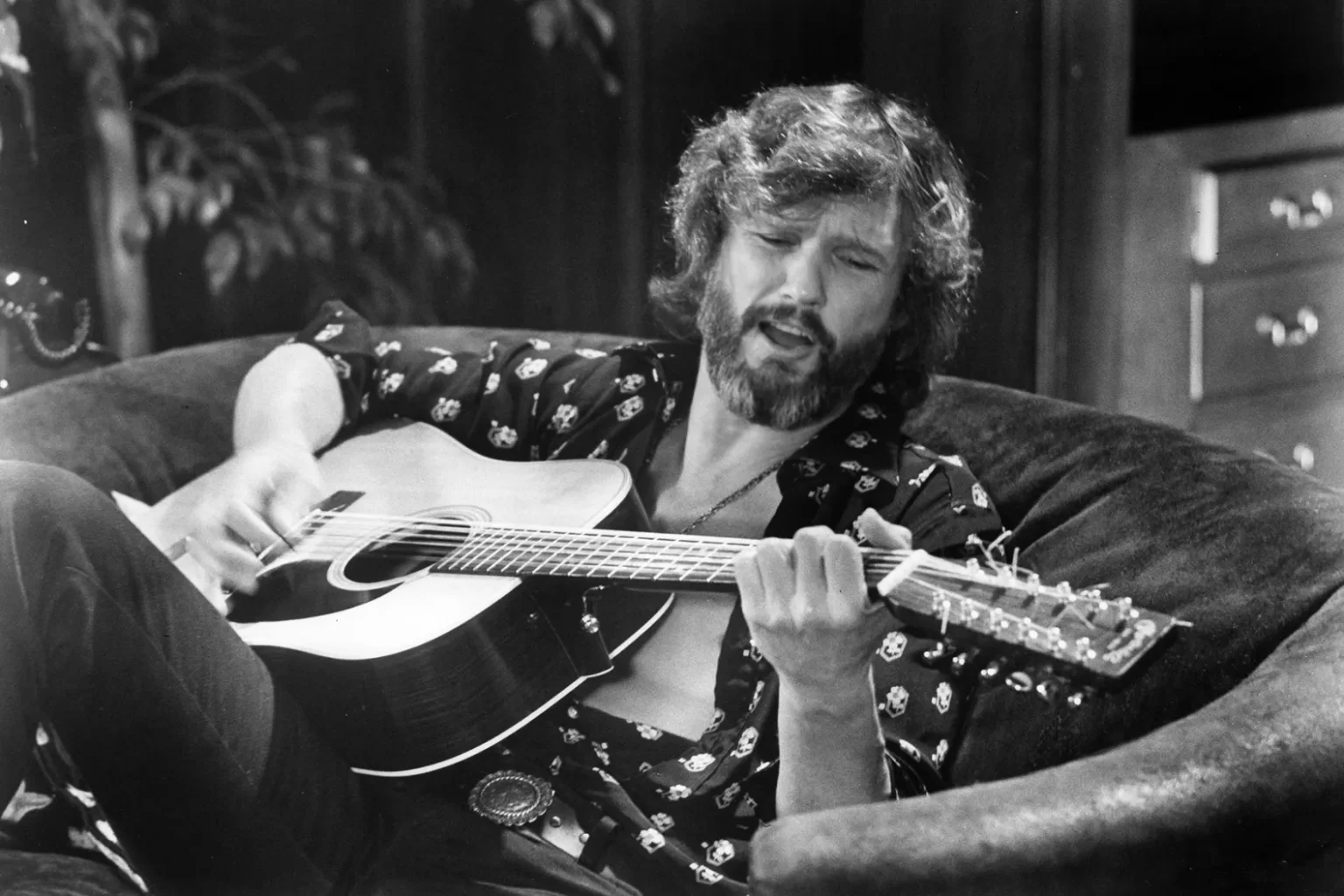Kris Kristofferson passed away at the age of 88 on September 28, 2024 at his home in Maui, Hawaii surrounded by family. No cause of death has been given.
Kristofferson was born June 22, 1936, in Brownsville, Texas. His father was an officer in the Army Air Corps and would rise to the rank of Major General in the U.S. Air Force. The family would move around due to the demands of military service but finally settled in San Mateo, CA. He was a Golden Gloves boxer and football player in college. He was a Rhodes Scholar and attended Merton College at the University of Oxford in England where he received a master’s degree in English. He turned down an appointment to teach at the U.S. Military Academy at West Point, New York, to pursue songwriting in Nashville.
Johnny Cash liked to tell a story about how Kristofferson gave him a tape of “Sunday Morning Comin’ Down” after landing a helicopter on Cash’s lawn with a beer in one hand. Kristofferson remembers it differently. “It was still kind of an invasion of privacy that I wouldn’t recommend,” he told the McClatchy News Service in 2008. “To be honest, I don’t think he was there. John had a pretty creative memory.”
Whether he was there or not, Kristofferson credits Cash “… for any success I had as a songwriter and performer. He put me on the stage the first time I ever was, during a performance at the (1969) Newport Folk Festival.”
Yet, Kristofferson was already experiencing some success. Ray Stevens had charted with his recording of “Sunday Morning Comin’ Down.” Jerry Lee Lewis did likewise with “Once More With Feeling” and “Me And Bobby McGee” was a country hit for Roger Miller.
“Sunday Morning Comin’ Down,” which would become a huge hit for Johnny Cash, is an archetypical example of Kristofferson’s songwriting. The protagonist wakes up on a Sunday morning feeling the effects of a hangover, “coming down” after getting stoned or drunk on a Saturday night. Like many of his songs, he writes about the price one pays after the fun is had – and it isn’t a pretty sight.
And there is a pain and loneliness in several of his songs that many of us can identify with in one way or another. He writes about it in a language we understand.
“For The Good Times” was a hit for Ray Price in 1970. The song is about a couple breaking up but the singer wants to spend one more night together making “believe you love me one more time – for the good times.” There is no need to watch the bridges being burned.
“Sunday Morning Comin’ Down” has a sense of loneliness about it. There is something in a Sunday that makes a body feel that way, perhaps because it takes us back to something we lost somehow along the way. And we wish we too were stoned to escape that feeling.
Janis Joplin recorded “Me And Bobby McGee” which was released shortly after her death. It became a mega-hit and one of Kristofferson’s most recorded songs. Once again, it is a song that explores lost love and loneliness. “I would trade all of my tomorrows for one single yesterday to be holding Bobby’s body next to mine.” But Bobby left to find a home and leave the life on the road behind, something we weren’t ready to do.
“Nobody Wins” was covered by Brenda Lee, Frank Sinatra, Lynn Anderson, Ray Price, and others. The relationship is at a dead-end and it is time to face the fact. “It’s a shame to make the same mistakes again and again/It’s over — nobody wins.” Every word hits home.
“Help Me Make It Through The Night” again deals with loneliness and a desire to find comfort and solace, no matter how fleeting. “I don’t care what’s right or wrong… Let the devil take tomorrow/Lord, tonight I need a friend.”
Kristofferson was not just a singer/songwriter. He also had a turn as an actor starring with Barbra Streisand in the original A Star Is Born. Kristofferson also starred with Ellen Burstyn in “Alice Doesn’t Live Here Anymore” and with Wesley Snipes in “Blade.”
Music was his first love, however. And hence Kristofferson became associated with country music’s so-called outlaw movement. This was a small group of iconoclastic artists who fought for and won their creative freedom outside of the Nashville establishment that dictated the sound of most country music of the era. It was a group including Cash, Willie Nelson, Johnny Paycheck, Waylon Jennings, David Allen Coe, and Merle Haggard. They brought elements of blues, rock, honkytonk, and rockabilly to country music.
Kristofferson, Cash, Nelson, and Jennings formed a country supergroup called the Highwaymen. They had a #1 country hit in 1985 with the song “Highwayman” from their album of the same name. They would record two more albums and tour through the 1990s.
“When I look back now – I know I hear Willie say it was the best time of his life,” Kristofferson said in 2005. Jennings had passed away in 2002 and Cash would follow in 2003. “For me, I wish I was more aware how short of a time it would be. It was several years, but it was still like the blink of an eye. I wish I would have cherished each moment.”
Yes, Kris, it seems to us also that your time has passed in the blink of an eye. But we still have your songs and many of us will cherish them for years to come.


